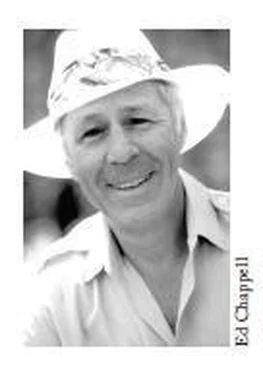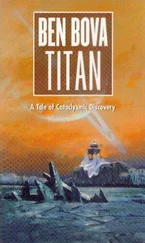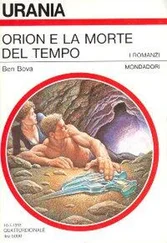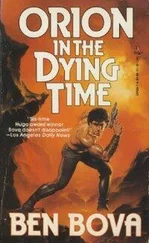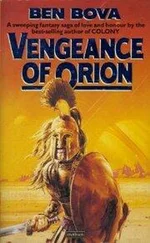Aten had put that knowledge into my mind. But why he had sent me through spacetime to Amesbury fort I did not know. Aten, the Golden One, is my master, my Creator, sneering and superior. I have died many times, in many strange and distant places, but always he brings me back, revives me to send me on still another task of pain and danger.
“You are my creature, Orion,” he has told me often. “My hunter. I built you and you will do as I command.”
I hate Aten and his mad dreams of controlling all of spacetime to suit his whims. There are other Creators, as well, haughty and demanding, toying with human history like children playing with dolls. Cruel gods and goddesses, all of them.
Except for Anya.
Anya of the gray eyes and supernal beauty. Anya is the only one among those Creators who cares at all for their creatures. Who cares for me. I love Anya and she loves me. Aten knows this and, vicious with implacable jealousy, sends me far from her, to serve him and die over and over again.
“Well, you’re big enough,” said Sir Bors, snapping me back to the moment. “Can you fight?”
I smiled tightly. I had led Odysseos’ men over the high stone wall of Troy. I had made Mongol warriors gape at my battle prowess. I had helped Beowulf kill Grendel and its mother.
“I can fight,” I said.
Sir Bors barely reached to my shoulder. He was thick and solid as a barrel, though, his arms heavy with muscle. He wore only a cracked and stained leather jerkin over his tattered knee-length tunic. But he had a long Celtic broadsword belted at his hip. I was in chain mail and linen tunic, my sword strapped to my back.
Drawing his sword from its leather scabbard, Bors said, “Let me see what you can do.”
“Wait!” a young voice cried from behind me. “Let me test him.”
I turned and saw a handsome tall nobleman walking toward us, so young that his beard hardly darkened his chin. His eyes were light and clear, flecked with gold, his shoulder-length hair a light sandy brown, almost blond. He was smiling warmly.
“My lord,” Bors said, his tone several notches softer than it had been, “this Sarmatian—”
So this was Arthur. He had grown into a strong young man since the time when he’d been a starveling captive of Hrothgar, king of the Scyldings, in Daneland.
“He’s got good shoulders, Bors,” said Arthur. Then, to me, he added, “Let us see if you know how to use your sword.”
Bors objected, “But, my lord, you shouldn’t engage yourself with a stranger. He might be an assassin, sent to kill you!”
Arthur laughed aloud. He had no fear of an assassin. He did not know that I had murdered men in other eras, at Aten’s behest.
A squire, not much younger than Arthur himself, trudged up and handed him his helmet and a shield with a blood-red dragon painted on it. I drew my own sword, heard its steel tongue hiss as it came out into the sunlight. My fingers tightened on its leather-wrapped hilt.
“Where is your helmet, friend, your shield?” Arthur asked as he stood before me. His iron helmet covered his cheeks and had a nosepiece shaped like an upside-down cross.
“I won’t need them,” I said.
His smile turned down a little. “Pride goes before a fall, Sarmatian.”
“Then I will fall,” I replied.
Arthur shrugged, then put his shield up and advanced toward me, sword cocked in his right hand.
My senses went into overdrive, as they always do when I face battle. The world around me seemed to slow down, as if everything was happening in a dream. I could see Arthur’s gold-flecked amber eyes blinking slowly over the rim of his shield. And Sir Bors stepping sideways to keep at my side. His sword was still in his hand, ready to strike me down if I endangered Arthur. I thought he was more worried that Arthur did not have the skill or experience to face a true fighting man than fearful that I was an assassin.
Arthur swung at me in lethargic slow motion, a powerful overhand cut that would have sliced me down to the navel if I hadn’t danced lightly out of harm’s way. He grunted, frowned, and advanced upon me in sluggish slow motion.
I feinted once to the left, then slashed at his shield, splitting it in two with a loud cracking sound. My blade would have taken Arthur’s arm off if I hadn’t pulled back in time.
Arthur’s eyes went wide with surprise. After only a moment’s hesitation, he tossed away the broken shield and came at me again. He smashed another mighty overhand slash at me. I parried it easily and his blade shattered into several pieces with a brittle snap.
“Hold!” Bors shouted, sticking his sword between us.
I stepped back.
If Arthur had feared that I would kill him he gave no sign of it. Instead, he tossed away the broken stub of his sword and then reached out for mine.
“That’s a fine piece of steel,” he said admiringly as I handed the sword to him.
Without thinking of why, I answered, “I know where you can get one that’s even better, my lord.”
2
It took hours of arguing and cajoling, but at last Arthur and I set out for the distant lake in search of the sword I promised him. Sir Bors and the other knights were dead set against the king’s nephew traveling alone with a stranger from a distant land. Bors complained that the fort might be attacked by Saxon raiders at any time, and Arthur’s place was where his uncle had put him. But wizened old Merlin was on my side.
“The Sarmatian brings good fortune to Arthur,” the old wizard said, stroking his long white beard as he spoke. The beard was knotted and filthy, his homespun robe even dirtier, but all the knights and squires stared at him with wide-eyed awe. They would not step closer than five paces to him; Merlin walked through the little fort’s dung-dotted courtyard as if protected by a magical aura.
In truth, I saw a burning intelligence in the old man’s narrowed eyes, a keen awareness that belied his wrinkled, ragged appearance. Beneath those shaggy gray brows his eyes were shrewd, sharp, penetrating. Was he one of the Creators in disguise?
To satisfy the suspicious knights, Merlin cast a spell to protect Arthur, nothing but hand-waving and muttering as far as I could see. But it seemed to satisfy Sir Bors and the others, at least enough to allow their young leader to leave the fort with me and no one else.
For two days we rode, and I got to know Arthur a little. He was burning for fame and glory. His highest hope was to one day be named Dux Bellorum: battle leader of his uncle’s forces.
Yet, like many an untried youth, he doubted his own abilities.
“I can see it in the faces of Bors and the others,” he told me as we camped for the night in a dark, dank forest. The huge, broad-boled trees grew so thickly that much of the day we had been forced to lead our horses afoot. “They would never follow someone so young.”
“They will, my lord,” I said, “once you prove yourself in battle.”
He shook his head mournfully. “The curse of the Britons, friend Orion, is that they will not follow anyone for long.”
“They will follow you, my lord. I’m sure of it.”
In the darkness of the forest night I heard him make a sound that might have been a sigh. “No, Orion. Look at us! Ambrosius calls himself high king, but who follows him? A handful, that’s all. You travel for two days in any direction and you pass through two or three different kingdoms. We have kings every few miles, each of them jealous of all the others.”
“No wonder the Saxons can raid and plunder as they wish.”
“Yes,” he said grimly. “Our people shatter like the sword I used against you. One blow and they break.”
He was silent for a moment. Then, “But if I could bring all the Britons together, unite all these petty kingdoms…”
Читать дальше
